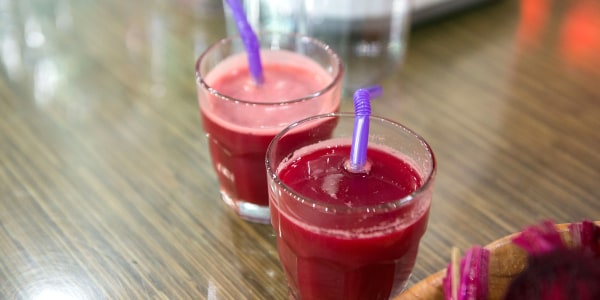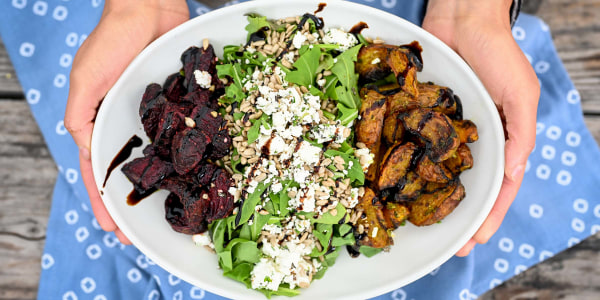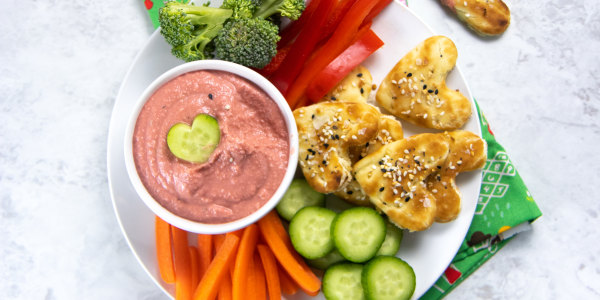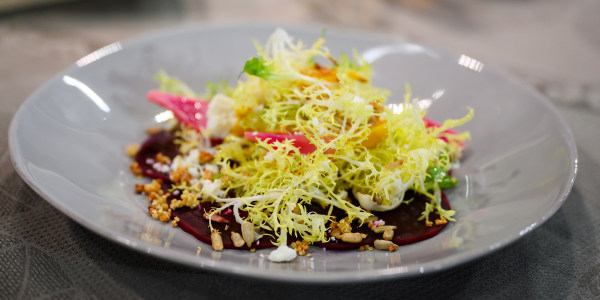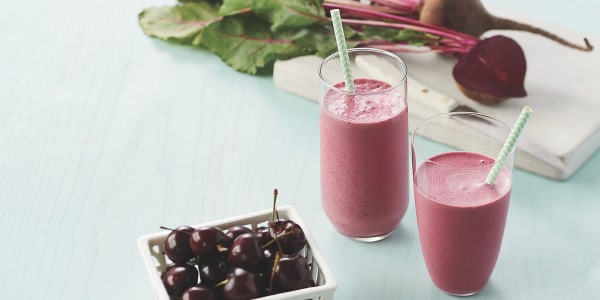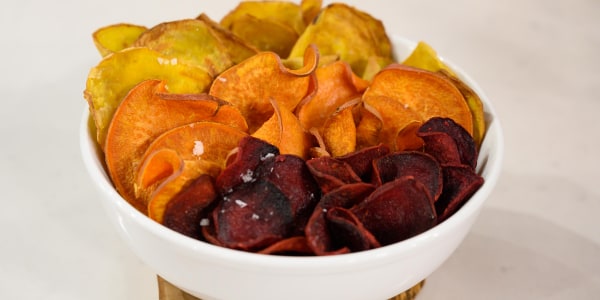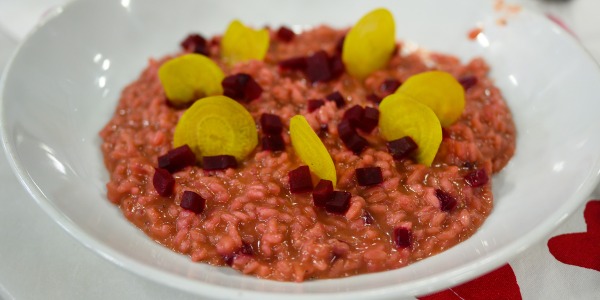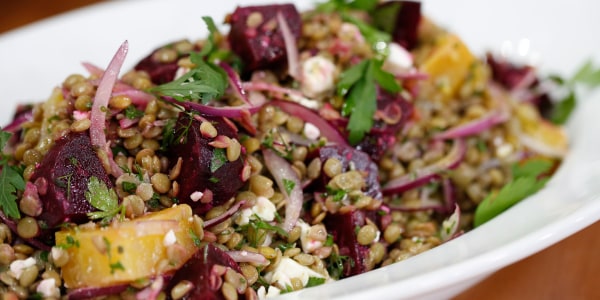With their earthy flavor and lovely color, beets are a welcome addition to any winter dish. They are inexpensive, versatile and hearty, and you can even eat beet greens to reduce food waste. Beets are loaded with antioxidants, fiber and plenty of vitamins and minerals, and research has linked them to lowering inflammation, reducing blood pressure, increasing athletic performance, and possibly even treating cancer.
Let’s take a deeper dive into all things beetroot, including nutrition facts, health benefits and easy recipes to try.
Beets nutrition facts
One cup of beets has:
- 59 calories
- 2 grams protein
- 13 grams carbohydrates
- 4 grams fiber (14% daily value)
The health benefits of beets
Not only are beets packed with fiber, but they also contain calcium, vitamin C, iron, potassium and magnesium. On top of that, they contain two special inflammation-fighting compounds: nitrates and betalians. These phytonutrients (beneficial plant compounds) have been shown to fight harmful oxidative stress in the body and possibly play a role in the treatment of cardiovascular disease and cancer.
A 2021 review in the journal Food Science & Nutrition discusses the role of dietary nitrates in blood pressure control. After ingestion, nitrates are converted to nitric oxide in the body, which is a potent vasodilator that opens the blood vessels and promotes blood flow throughout the body. This increase in blood flow results in less pressure in the arteries.
Beetroot juice — a concentrated form of nitrates — has been studied for its role in lowering blood pressure. A review of seven studies states that nitrate from beetroot juice reduces systolic blood pressure in people with hypertension. In other words, beetroot juice is an effective and affordable way to improve blood pressure levels. In addition, the betalains and nitrates in beets can also reduce triglycerides, another risk factor for heart disease.
Interestingly, the antioxidant effects of beets may also help treat cancerous tumors. Doxorubicin is a medication often used to treat tumors, but too much of it can cause heart damage. Yet, studies have shown that combining doxorubicin with beetroot juice mitigates heart damage and increases the efficacy of the drug.
It’s worth noting that most of the research on beets uses beetroot juice, rather than eating beets. This is because juicing beets is a simple way to get a high amount of nitrates in one serving. Although it hasn’t been proven through research, it’s safe to assume you can see some of these inflammation-fighting benefits from eating beets regularly.
Beets side effects
There are no major drawbacks to eating beets. They are a healthy food that benefits many areas of the body. If you consume a large amount of beets or drink beetroot juice, you may notice a red tinge to your urine or feces. This is perfectly normal and not cause for alarm. It’s actually the breakdown of the betalians in the beets, which give the root veggie their deep rich color.
Beets are rich in natural plant compounds called oxalates. According to the National Kidney Foundation, eating beets may be a factor in the development of certain types of kidney stones. However, this is only relevant to people who are prone to calcium oxalate stones. Eating calcium in conjunction with oxalate-rich foods binds the plant compound and removes it from the body, thereby reducing the risk of developing kidney stones. If you’re worried about kidney stones, talk to your doctor.
Beetroot juice benefits for athletes
Believe it or not, many athletes take shots of beetroot juice before competition to boost their performance. There is an abundance of research showing that beetroot juice is a natural and affordable way to gain that athletic edge.
A 2018 randomized controlled trial asked 15 healthy resistance-trained men to drink 70 milliliters (2 ounces) of beetroot juice or a placebo drink before 30-second bike sprints. The participants who drank the beetroot juice had more power in their sprints and performed better overall.
The results of this trial have been shown across many studies. The nitrates in the beetroot juice increase blood flow during exercise, causing more oxygen to reach working muscles, which increases power output and improves muscle contraction and force.
Since beetroot juice is a more concentrated form of nitrates, all of the research on athletic performance is in beetroot juice, rather than eating beets. So if you’re running a race or engaging in an athletic competition, take a shot of concentrated beetroot juice beforehand.
Can you eat beet greens?
If you’re looking to cut back on food waste or get more vitamin K, look no further than beet greens. Although they are often discarded, the leafy tops of the beets are edible and delicious. These slightly bitter and hearty greens are similar to kale or swiss chard and make a nice addition to soups, smoothies and casseroles. Or, sauté them with some olive oil, garlic and salt and serve as a healthy side dish.
One cup of beet greens has 12% of the daily value of vitamin C and more than 100% of your daily vitamin K. In other words, they are good for the immune system, blood clotting and bone health.
Healthy beet recipes
Beets are a go in everything from smoothies to risotto to a simple salad, and they add a gorgeous red color to any dish. Here are some of our favorite healthy beet recipes:
